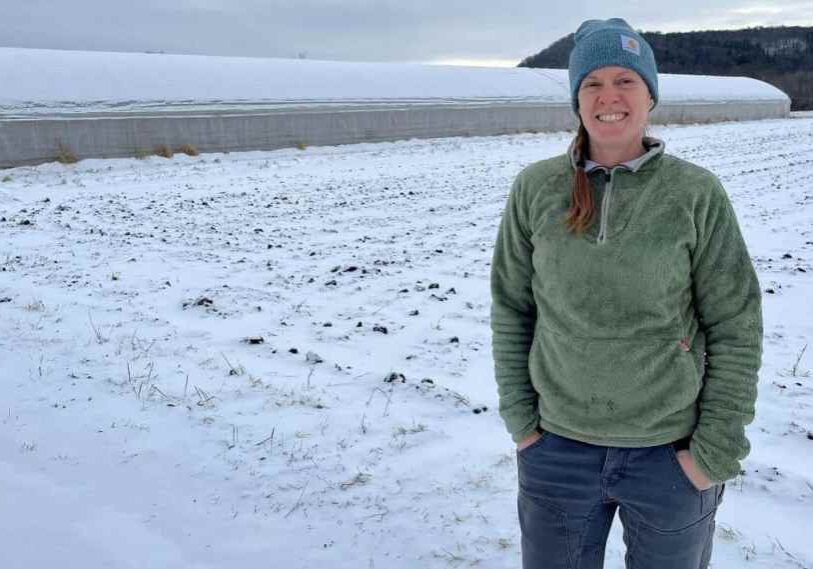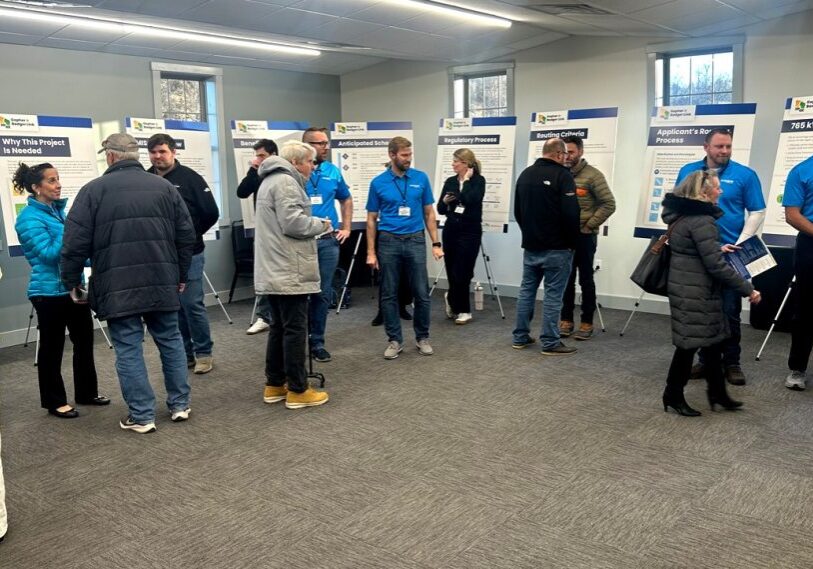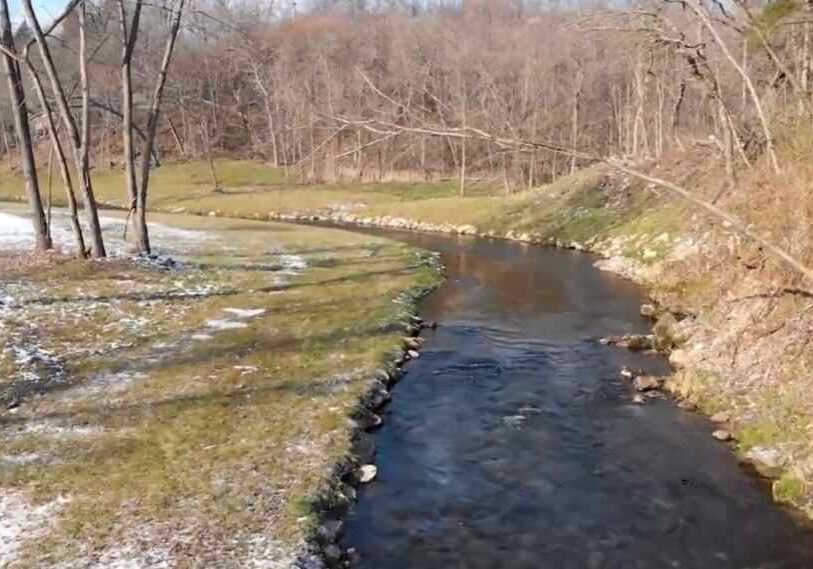Minnesota Nitrate Concerns Inspire Iowa Groups to Seek EPA Help
Southeast Minnesota’s nitrate and well contamination issues inform similar concerns south of the border.

NORTHEAST IOWA – Iowa environmental groups are asking the U.S. Environmental Protection Agency (EPA) to step in and protect drinking water in northeast Iowa from agricultural runoff. Their actions were inspired by a successful campaign surrounding ongoing contamination issues in southeast Minnesota’s Driftless Area.
The petition was announced in April, hours after the Iowa Environmental Protection Commission (EPC) unanimously approved largely status quo rules governing animal feeding operations.
“The Environmental Protection Commission has once again proven who they really serve – not the Iowa public, but big ag polluters,” said Alicia Vasto, water program manager for the Iowa Environmental Council, one of the 13 groups that filed the petition with the EPA. The petition asks the EPA to use its emergency authority to intervene in Iowa to “address groundwater contamination that presents an imminent and substantial endangerment to the health of residents in northeastern Iowa.”
“The well-documented nitrate contamination of drinking water in the karst region necessitates prompt and decisive EPA emergency action,” the petition states. “Elevated levels of nitrate in drinking water are known to increase the risk of a wide range of very serious health problems.”
A 2018 review of 30 academic studies showed a link between ingesting nitrate from drinking water and adult diseases, including colorectal cancer. Other University of Iowa studies show nitrate consumption may cause bladder and ovarian cancer in older women, The (Cedar Rapids) Gazette reported earlier this year.
Nitrate is found at potentially harmful levels in 1-in-20 Iowa public drinking water systems and in more than 12,000 private wells in Iowa. The petition focuses on Iowa’s Driftless region, where porous karst terrain makes streams and groundwater particularly vulnerable to fertilizer or manure runoff.

Root River Current co-publisher John Gaddo examines an expanding sinkhole in southern Winona County; a larger, established sinkhole is surrounded by trees in the background. Found throughout the Minnesota-Iowa Driftless-area’s karst topography, sinkholes are notable for providing a ‘conduit’ for surface runoff to quickly enter subsurface groundwater sources. (Photo by Nancy North)
Just across the state border to the north, the EPA in November 2023 told the Minnesota Pollution Control Agency to develop a plan for addressing nitrate levels in drinking water sources in southeastern Minnesota. This EPA demand came six months after environmental groups in Minnesota filed a petition comparable to what Iowa groups filed.
“We’ve seen similar increases in nitrate in drinking water sources just like in Minnesota,” said Michael Schmidt, an attorney for Iowa Environmental Council. “We would expect the EPA to do at least as much in Iowa.”
Other groups included on the petition are: Allamakee County Protectors (Education Campaign, Center for Food Safety, Environmental Law & Policy Center), Environmental Working Group, Food & Water Watch, Iowa Alliance for Responsible Agriculture, Iowa Citizens for Community Improvement, Izaak Walton League of America (Iowa Division), Sierra Club Iowa Chapter, Socially Responsible Agriculture Project, Iowa Coldwater Conservancy, and Trout Unlimited (Iowa Driftless Chapter 717).
Iowans ask for tougher rules on concentrated animal feeding operations
Prior to the petition release, the Iowa Environmental Protection Commission in April also held a public hearing in addressing revisions to Chapter 65 of Iowa’s Administrative Rules (state rules related to animal feeding operations); eleven people asked for tougher regulations on how developers build feeding operations and dispose of manure.
“Iowa has over 10,000 factory farms that contribute to over 750 impaired waterways,” said Tom Mohan, of Cedar Rapids. “We believe clean water is a human right.”
Rich Gradoville, of Johnston, said he recently was diagnosed with bladder cancer and his urologist mentioned the possibility of agricultural pollution in drinking water as a factor.
“Since our body deals with all our drinking water through our bladder, that makes sense to me,” Gradoville said. “I’d like to see you strengthen these regulations as much as possible.”
Three people representing agricultural groups spoke in favor of the rules.
“The Iowa Cattlemen’s Association supports the rules you have before you,” said Eldon McAfee, an attorney with the Brick Gentry law firm and a former dairy farmer. He said the rules protect soil and water without infringing on farmers’ rights.
Commission Chair Harold Hommes asked Iowa DNR staff whether it was possible to change the proposed rules. Staff said any major changes would start the rules review process over again.
Karst protections stripped from an early rules draft
The Iowa DNR’s first version of the Chapter 65 revision last fall included additional requirements for feeding operations in the karst terrain of northeast Iowa.
Additional Articles On Water Quality Published By Root River Current: Minnesota Launches First Phase of Nitrate Mitigation Plan Southeast Minnesota Runoff Pollutes Beyond Local Area Nitrate and Water Issue Proposals Addressed by 2024 Minnesota Legislature State Officials: January 2024 Plan Addresses Nitrate Contamination Issues Local Forums, EPA Raise Questions About SE Minnesota Water Quality … State Agencies Respond What Happens When Feedlots Get Bigger in Karst Country?

This story is from the Mississippi River Basin Ag & Water Desk, an editorially independent reporting network based at the University of Missouri School of Journalism, in partnership with Report For America and the Society of Environmental Journalists with funding provided, in part, by the Walton Family Foundation.








